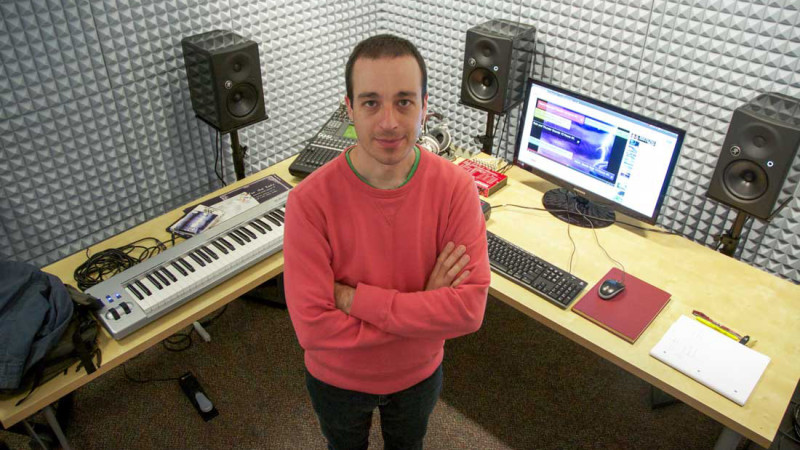We often hear about those defining moments in a person’s life that guide them into what they should be doing. For me, growing up as a young boy in a suburb of St. Louis taught me to listen deeply. I recall so vividly the thunderstorms rolling through those midwestern nights, and how I would often fight off sleep just to lay there in the dark and experience the crackles and booms. Perhaps moving to California in my youth where thunderstorms are the exception, not the norm, led to my passion and discovery of things like field recording, sound art, electronic and experimental music — and composers like Bruno Ruviaro.
Ruviaro was born in São Paulo, Brazil, and currently lives and teaches in the Bay Area. His first lessons in music began at the age of 13. Now 38, he recalls wanting to play the piano at an early age.
“I remember there was one distant relative that had a piano,” he says. “You know, the furniture piano nobody played? We would only go to his house occasionally and I was always fascinated by that thing in the living room. And for some reason they never really invited me to sit down and make some noise or whatever. Once I was able to say, ‘Can I touch it?’ And then they opened it. There was something about the smell, the looks, the whole thing. And I went over to it and I remember the first thing I figured out how to play was because I had seen an episode of Woody Woodpecker. It was like a wild west cartoon. There was a bank robber trying to escape by hiding inside a piano in the saloon. The bank robber from inside the piano says to Woody, ‘You don’t tell anyone or else!’ And then with the end of the gun he plays…” [Ruviaro walks over to a piano sitting beside me and plays the notes from his childhood memory. He comes to learn it was Chopin’s “Funeral March.”]
Despite his inclination to play the piano, Ruviaro’s first two years of music lessons were on the organ. “The methods they used at the time for organ contained a mix of classical and popular music. It was a little unusual,” he said. “In the same book you would have some arrangements of Beethoven pieces and then some arrangements of Beetles pieces. It was a really crazy mix. And because it was organ, they didn’t make piano-like arrangements, they made arrangements where you had the melody, and then the chords on the left hand. Pretty much how a guitar player would read music. So from the beginning I actually learned how to read chords like a popular musician would learn. I think that stayed with me. That was a very valuable thing. When I moved to piano there was no turning back.”


